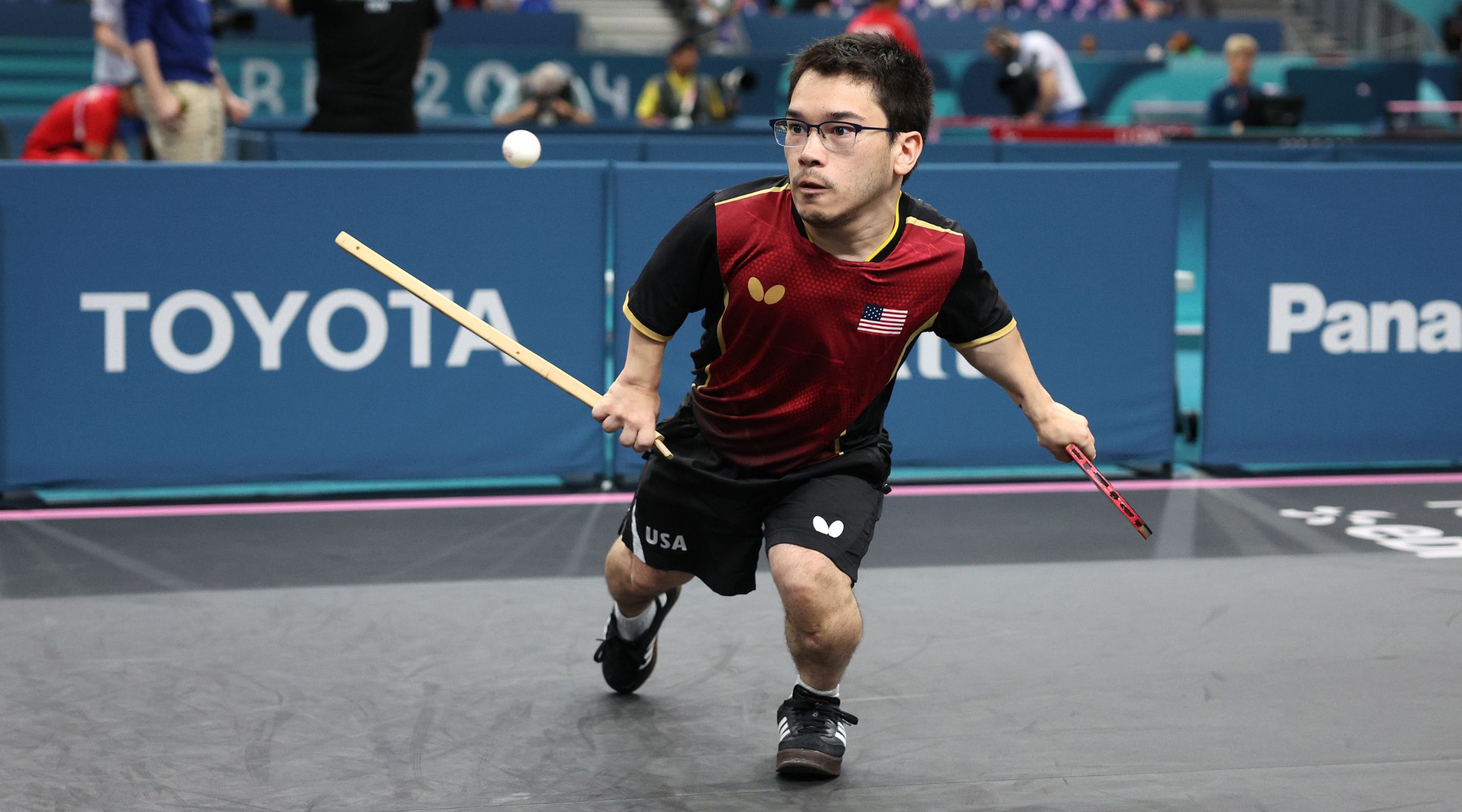Jewish US table tennis star Ian Seidenfeld wins bronze at Paris Paralympics
Seidenfeld, who is coached by his father, had won a gold medal at the Tokyo Games

Ian Seidenfeld during the men’s singles MS6 semifinal at the Paris 2024 Summer Paralympic Games, Sept. 5, 2024, in Paris. (Elsa/Getty Images)
(JTA) — Three years ago in Tokyo, American Jewish table tennis star Ian Seidenfeld pulled off an upset, defeating the No. 1 ranked player in the world to win gold in his Paralympics debut. But on Thursday, he was unable to defend his title, settling for a bronze medal in Paris.
Seidenfeld, 23, won his round of 16 and quarterfinal matches this week in men’s table tennis singles MS6, both by a score of three games to none, before losing by the same score Thursday in the semifinal.
The Lakeville, Minn., native, who was born with Pseudoachondroplasia dwarfism, an inherited bone growth disorder, uses a paddle extension that helps him reach short serves. But in his semifinal match against Italy’s Matteo Parenzan, it was those short serves that foiled Seidenfeld’s chances.
“I’m a much better player than he is at almost every other shot,” Seidenfeld said after the match, according to Team USA. “So, I don’t need to improve my other shots as much as working on getting those short serves back. It doesn’t bring me joy to hit those shots or play against that. I really play table tennis to have fun.”
Seidenfeld’s Tokyo medal made him the first U.S. player to win gold in Paralympic table tennis since fellow Jewish player Tahl Leibovitz in 1996. Seidenfeld and Leibovitz played together in doubles last week but lost in the opening round. Leibovitz, 49, is competing in his seventh Paralympics.
Mitchell Seidenfeld, Ian’s father and himself a three-time Paralympian and four-time medalist, is a coach for the U.S. team. The younger Seidenfeld started playing table tennis at six years old and began competing internationally at 12. He won gold medals at the 2019 and 2023 Parapan American Games.






















